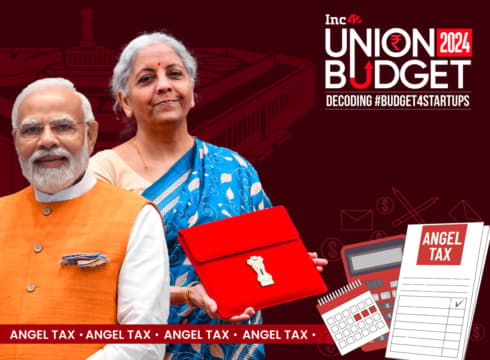The finance minister announced the abolition of the angel tax in a bid to boost the entrepreneurial spirit and support innovation
Startup founders and investors have for long criticised angel tax and called for its removal
Mohandas Pai, former CFO of Infosys and partner at Aarin Capital, called the announcement a major relief and said the government must also withdraw all cases pending under angel tax
Inc42 Daily Brief
Stay Ahead With Daily News & Analysis on India’s Tech & Startup Economy
In a major relief to the Indian startup ecosystem and investors, finance minister Nirmala Sitharaman announced the abolishment of the angel tax on July 23 (Tuesday).
In her budget speech, Sitharaman said, “To bolster the Indian startup ecosystem, boost the entrepreneurial spirit and support innovation, I propose to abolish the so-called angel tax for all classes of investors.”
The move is part of the Centre’s efforts to promote investments in the country.
Following Sitharaman’s announcement of scrapping angel tax, Mohandas Pai, former CFO of Infosys and partner at Aarin Capital, told Inc42, “It is a big relief for the startups. The government should have done it earlier instead of harassing people. The government must also now withdraw all cases pending under angel tax in the last five years and state clearly that no angel tax will be levied on any pending assessments.”
It is pertinent to note that the entire Indian startup ecosystem, including VCs and founders, were seeking clarity on the angel tax front during this budget.
For a quick recap, the so-called angel tax traces its origin back to March 16, 2012, when Section 56(2)(viib) was inserted in the Income Tax Act, 1961. The section was introduced to keep shell companies at bay and prevent laundering of black money.
However, it soon became a bone of contention. Around 2016, tax officials began issuing notices to startups to pay angel tax and questioned new-age tech companies over their valuation methodology and others.
Angel tax is payable on capital raised by unlisted companies if the value of the shares issued to investors exceeds their fair market value (FMV).
In March 2019, the government provided an exemption on angel tax to startups under certain conditions after facing some pressure. In the Finance Bill, 2023, while the government introduced certain exemptions for overseas investors, the startup investments continued to be in trouble.
In recent days, top names in the startup ecosystem, including Pai, have criticised the angel tax. The Department for Promotion of Industry and Internal Trade (DPIIT) also recommended the removal of the angel tax for startups.
Meanwhile, Siddarth Pai, the founding partner at 3one4 Capital, told Inc42 that the announcement of the removal of angel tax is a big reform.
“This is essential for startups to remain in India and build from here. This is a major step forward for Indian startups. It is a watershed moment in the Indian startup story. A tax on capital is antithetical to capital formation and this has long been used to harass startups and investors. Given the mandatory dematting of securities, Section 68, disclosure of unlisted investments in tax returns has plugged the transparency gap for which angel tax was created. It took 12 years, but the startup industry can heave a sigh of relief that the dreaded angel tax has been removed,” he said.
{{#name}}{{name}}{{/name}}{{^name}}-{{/name}}
{{#description}}{{description}}...{{/description}}{{^description}}-{{/description}}
Note: We at Inc42 take our ethics very seriously. More information about it can be found here.


